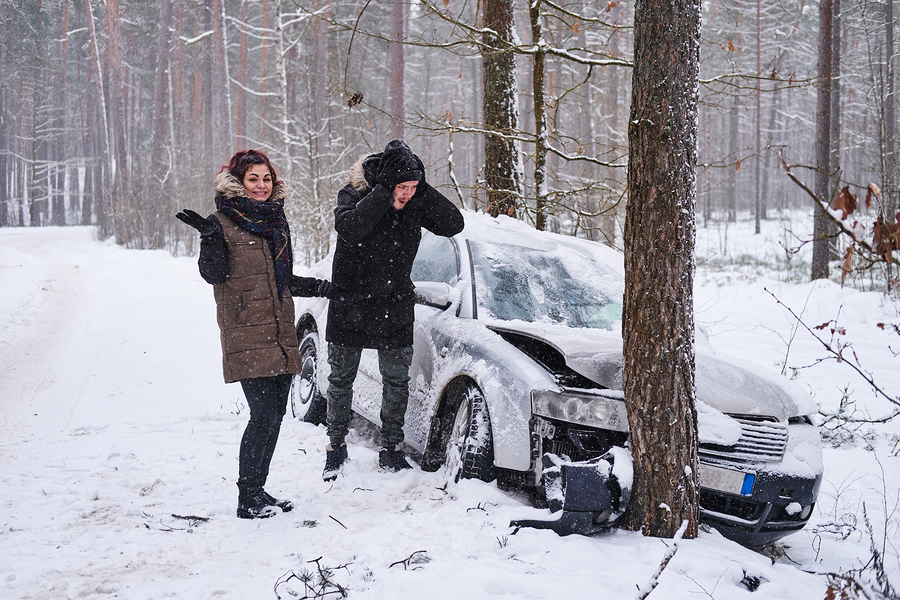Car accidents can happen in the blink of an eye, but the repercussions can leave you reeling for much longer. Your life as you know it may change in profound ways. You may lose the ability to work. You may accumulate hundreds of thousands of dollars of medical debt. Your relationships with friends and family members may suffer. Your own personality may transform.

Car accidents cause millions of injuries every year across the United States. The costs that result from wrecks like medical expenses, property damage, and wage loss amount to over $400 billion annually. Most people struggle to shoulder the financial burdens inflicted by car accident injuries, particularly when someone else’s careless, reckless, or intentionally-harmful actions caused the crash. Obtaining the financial compensation you deserve can, in some cases, depend upon taking the proper steps to protect your legal rights. In this blog post, we review those steps.
Call Emergency Services
If your accident causes an injury, your first step should always be to contact emergency services. You’ll want to receive medical assistance as soon as possible after a wreck, and New York law could require you to notify the police of a crash. Once paramedics arrive, it is almost always in your best interest to accept medical treatment when offered.
Seeking medical treatment establishes clear evidence of a link between your injuries and the accident, which will prove essential to making a successful legal claim for damages later. Conversely, if you wait to get treatment or fail to see a doctor, parties who might otherwise owe you damages may point to your actions as reasons to doubt the nature, extent, or causes of your injuries.
Start Collecting Evidence
Evidence constitutes the connective thread that ties your case together, and there is no better time than right after an accident to start to gather it. Collecting contact information from the others involved in the crash, and taking photos and videos with your cell phone of the accident scene, will help you preserve a clear and accurate record of the moments immediately following the accident, and could provide an important basis for a finding of legal liability against the at-fault party.
Speak With the Responding Police Officer
The responding police officer will typically fill out a police report, which will be available to you at the precinct that has jurisdiction over the area where your accident occurred. This document can come in handy later as you begin to build your case, as it is generally the first official record of the accident.
Of course, reports are never perfect. Police officers are human, and they can make mistakes or overlook important evidence. Speaking with the officer can help to ensure your account of the accident—just the facts, not your judgments about who was at-fault—makes its way into the report and becomes part of that important initial record.
Gather Eyewitness Accounts
It is normal for accident victims to have trouble recalling the details of a crash. Not because it wasn’t important, but rather because your brain is busy handling fight-or-flight responses instead of making memories. A rush of adrenaline could force you to focus so closely on survival that you cannot recall things like the other driver running a red light or failing to yield. For this reason, it can be crucial to collect reports for anyone else who witnessed the accident.
Pedestrians with a first-hand view, diners at a nearby restaurant, office workers stationed nearby, and even video witnesses (like traffic and security cameras) could all offer valuable perspectives. Search them out, then take down their information so that your lawyer can return to them.
Share Only the Required Information
You are sometimes obligated to interact with the other driver in an accident. This is generally a step that involves sharing your driver’s license number, insurance information, and vehicle registration. At no point, however, should you imply or outright accept any share of the blame for the crash. It is not your job to console the other driver or act polite by taking some of the blame from them.
While you will both likely have to file an accident report with the Department of Motor Vehicles after a crash, the office does not need you to determine fault. It can hurt your case if you say anything that could be misinterpreted as an admission of fault.
Follow Through on Medical Treatment
Once the scene of the accident is behind you, your ongoing medical treatment is likely to become an essential aspect of ensuring you receive the compensation you deserve, not to mention that seeking appropriate medical care protects your health, which is a priority.
Once your physician recommends a course of treatment, stick to it until you have a clean bill of health. Skipping medical care for any reason, even an understandable one, could harm your ability to recover much-needed and deserved compensation from the at-fault party.
Consult a Car Accident Attorney
Contacting an attorney who works with car accident cases is usually one of the most important steps you can take on the road to obtaining the compensation you deserve. Do not try to pursue a claim for damages on your own; that is always a bad idea. A plaintiff’s car accident lawyer attorney has the experience and know-how to stand up to insurance companies and defense attorneys to make sure you have the best chance of receiving maximum compensation.
Dealing With Insurance
A lawyer can also step in and handle interactions with insurance companies—yours or the at-fault party’s—on your behalf. Insurance companies stay in business by limiting the amount of money they pay in claims. Do not fall prey to the tricks and tactics they use to attack the validity of your claim. Let an experienced car accident attorney communicate with them instead.
No one wants to face the prospect of recovering from a car accident. If the worst happens, however, it helps to have experienced legal counsel by your side. Contact a skilled New York car accident attorney today to protect your rights to the compensation you deserve.



